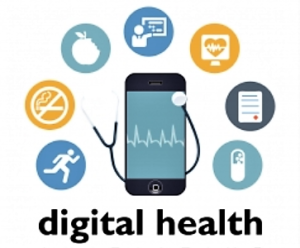- How a Major Drugmaker Plans to Cure Disease… Without Drugs (fool.com)
Hacking into the body's nervous system may allow GlaxoSmithKline to commercialize an entirely new field of medicine...GlaxoSmithKline plc has the resources to pursue long-term bets in medicine that could eventually change the course of disease treatment and yield large payoffs...to literally eavesdrop on the body's electrical system and enter into the body's own internal conversations in order to heal disease...every organ has a nerve connection that regulates its function. Organs are controlled by patterns of electrical impulses transmitted through nerve fibers, but when organs dysfunction in chronic disease, the electrical patterns are different. That fact opens up the possibility that inserting patterns in nerves to certain organs can correct conditions that lead to disease...scientists are just beginning to realize the possibilities of using nerve signals to restore organs to normal function and actually treat disease...Bioelectronic medicines have the potential of doing to the pharmaceutical industry what biopharmaceuticals did to small molecules back in the 1980s…
- Tech-focused Takeda pilots Apple Watch trial to collect depression data (fiercepharma.com)
Wearable tech is increasingly making its way into pharma, and Takeda is welcoming the trend with open arms. Most recently, the Japanese drugmaker partnered with digital health tools venture Cognition Kit to collect active and passive patient data for a deep dive on depression...Each person in the just-launched pilot study will wear an Apple Watch that will passively collect physical activity data all day, while three separate prompts throughout the day will remind the patients to complete cognitive and mood assessments...Results from the study, which are expected in the first half of the year, will look at the wearable mood and cognition measurements, along with compliance, and compare the findings to more traditional examinations and patient-reported assessments... This collaboration is part of our strategy to embrace new technology to better understand the patient experience and assist healthcare professionals in creating improved patient care pathways...
- Obamacare plans’ drug spending rose faster than other plans in 2016: Express Scripts (in.reuters.com)
Spending on prescription drugs for health plans created under the Affordable Care Act increased last year at a rate more than three times that of other commercial plans and most government-run plans managed by Express Scripts Holding Co...year-over-year spending per person for individual insurance plans sold on the Obamacare exchanges where it manages the pharmacy benefit rose 14 percent in 2016, driven by higher drug prices and utilization...Express Scripts said per-capita spending for other commercial plans it manages, mostly for employers, rose just 3.8 percent last year, despite an 11 percent increase in list prices for brand-name drugs...Drug spending for plans the company manages under Medicare...increased 4.1 percent last year while the rise for Medicaid...was 5.5 percent.
- This Week in Managed Care: February 24, 2017 (ajmc.com)
Laura Joszt, assistant managing editor at The American Journal of Managed Care. Welcome to This Week in Managed Care from the Managed Markets News Network
- This Week in Managed Care: March 10, 2017 (ajmc.com)
Laura Joszt, assistant managing editor at The American Journal of Managed Care. Welcome to This Week in Managed Care from the Managed Markets News Network
- This Week in Managed Care: March 3, 2017 (ajmc.com)
Laura Joszt, assistant managing editor at The American Journal of Managed Care. Welcome to This Week in Managed Care from the Managed Markets News Network
- Deadly, Drug-Resistant ‘Superbugs’ Pose Huge Threat, W.H.O. Says (nytimes.com)
The World Health Organization warned on Monday that a dozen antibiotic-resistant “superbugs” pose an enormous threat to human health, and urged hospital infection-control experts and pharmaceutical researchers to focus on fighting the most dangerous pathogens first...Many consider the new strains just as dangerous as emerging viruses like Zika or Ebola...the...European Center for Disease Prevention and Control estimated that superbugs kill 25,000 Europeans each year; the C.D.C. has estimated that they kill at least 23,000 Americans a year...New antibiotic candidates are in short supply...because 70 years of research have made it harder to find new ones, and because they are not very profitable for pharmaceutical companies...In the United States, although constant vigilance is crucial, the problem has actually declined in the last decade...
- Pharmacy Week in Review: March 10, 2017 (pharmacytimes.com)
Ned Milenkovich, PharmD, JD, PTNN. This weekly video program provides our readers with an in-depth review of the latest news, product approvals, FDA rulings and more.
- Pharmacy Week in Review: March 3, 2017 (pharmacytimes.com)
Nicole Crisano, PTNN. This weekly video program provides our readers with an in-depth review of the latest news, product approvals, FDA rulings and more.
- Trump Care Will Create A New Wave Of Digital Healthcare Opportunities (forbes.com)
The next few years are likely to see a major attempt to use market mechanisms to reduce the cost of U. S. healthcare. Healthcare costs are rising again, and Republican campaign promises will put huge pressure on the federal budget. Republicans prefer market based solutions to problems, and they harshly criticize the parts of Obamacare that expand health insurance participation by means of entitlements and sanctions...they feature a shift from defined benefit federal health programs like Medicare and Medicaid, which entitle individuals to the care they need mostly at government expense, to defined payment programs that give individuals a fixed payment based on their life status and leave them responsible for buying the care they need…Since the beginning of the digital health era, entrepreneurs have been interested in creating businesses that enable healthcare consumerism...Healthcare consumerism is very hard to pull off. Price data is still hard to access, understand, and compare...I suggest these guiding principles for entrepreneurs seeking to ride the new wave of healthcare consumerism:
- Choose a sector with favorable characteristics: one in which consumers can judge the value of one offering relative to another and, given choices with different prices, they can choose better value without great risk or inconvenience.
- Consider business models that give healthcare consumers the benefit of professional buyers acting on their behalf.
- ...bear in mind that there are many opportunities in digital healthcare beyond business models that enable healthcare consumerism...businesses focused on making healthcare more efficient by other means, or solving long-standing problems of patient outcomes, comfort, safety, and convenience stand to do well...










